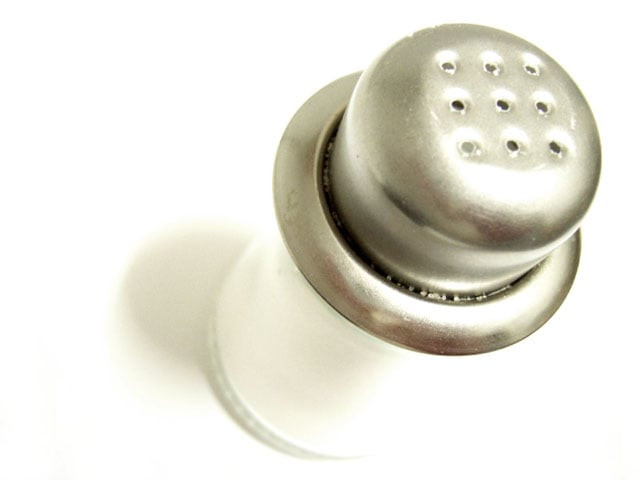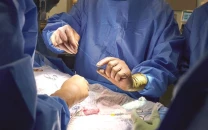Consumption of iodised salt rises to 69%
Iodine deficiency caused brain damage and low IQ in growing children, says Dr Ahmed.

Special Health Secretary Babar Hayat Tarrar on Tuesday reiterated the Punjab government’s commitment to legislate on universal salt iodisation.
He was addressing a refresher training course for district focal persons and district sanitary inspectors on the Elimination of Iodine Deficiency through Universal Salt Iodisation programme (IDD/USI) at the Directorate General of Health Services. More than 50 people from 21 districts participated in the course.
He said the involvement of the district administration in an effective monitoring of the IDD/USI programme was needed. He asked the Micronutrient Initiative (MI) and other development partners to proceed with drafting legislation on mandatory salt iodisation and said the Punjab government would ensure its approval by the provincial assembly. Additional Secretary (Technical) Dr Anwar Janjua acknowledged the work of the district health staff and the MI Punjab team. He said that thanks to their efforts, the consumption of iodised salt had increased from 17% of household in 2001 to 69% in 2012.
MI National Programme Manager Dr Khwaja Masood Ahmed said that iodine deficiency was still a problem in Pakistan. He said iodine deficiency caused brain damage and low IQ in growing children. It also caused complications in adults, particularly pregnant women and could lead to goiter. He said mothers and children had directly benefitted from the IDD programme and the percentage of iodine-deficient mothers had decreased to 37% in 2011 from 76% in 2001. He said 64% schoolchildren were iodine-deficient in 2001 and this number had decreased to 36% in 2011.
Food and Nutrition Programme Manager Dr Mahmood Ahmad said the Health Department, with the MI’s technical and financial assistance, was implementing the USI programme in all 36 districts of the Punjab. Currently, more than 60% of edible salt was adequately iodised in these districts, he said. MI Programme Manager Munawar Hussain discussed the monitoring tools for the IDD/USI programme. He presented an analysis of monitoring reports and stressed the need for proper documentation at the district and provincial level. He said that the MI had funded 36 district-level quality control labs.
Published in The Express Tribune, December 12th, 2012.



















COMMENTS
Comments are moderated and generally will be posted if they are on-topic and not abusive.
For more information, please see our Comments FAQ